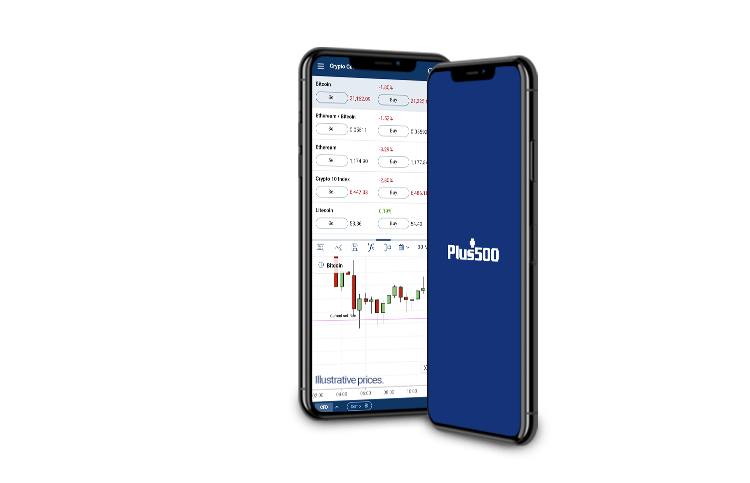What Are the Most Traded Cryptocurrencies?
Date Modified: 06/08/2023
The cryptocurrency landscape is hugely diverse. With few barriers to overcome, pretty much anyone that understands blockchain technology can launch their own cryptocurrency if they are so inclined. There are currently more than 1600 cryptocurrencies listed on major, middle-sized and specialist exchanges.
Of those cryptocurrencies and digital tokens, it is fair to say the number that has any genuine significance can be reduced down to double figures. That smaller group can be boiled down again to the cryptocurrencies that are traded enough to have real liquidity or are regularly used to pay for use of a blockchain platform with utility tokens. In this category, we can probably include somewhere between 20 to 30 different digital currencies.
Since the start of the cryptocurrency phenomenon, the two most popular cryptos have been Bitcoin and Ethereum (Ether).While Ether and Bitcoin remain the top-two contenders in the crypto sphere, there are other cryptocurrencies that have managed to make the par. In recent years, cryptocurrencies like Cardano (ADA) and Solana (SOL) have followed the footsteps of Bitcoin and Ether and have made it to the top ten most valuable cryptocurrencies by market cap.
Beyond Bitcoin and Ethereum, there are several more popular cryptocurrencies like Axie Infinity (AXS), Filecoin (FIL), and Uniswap (UNIUSD) but their value and popularity tend to ebb and flow. Moreover, if traders want to get exposure to more than one type of cryptocurrency, the uniquely-created Crypto 10 Index, which is made up of the most popular cryptocurrencies at any particular point in time, can also be traded.
What Are the Most Popular Cryptocurrencies Among Traders?
The immense number of cryptocurrencies available on the market is rapidly increasing. This, in turn, can make it harder for investors and traders to keep up with the most popular cryptocurrencies out there. It becomes a bit of a hassle to choose which cryptocurrencies are ‘worth’ trading and investing in. Nonetheless, Oone way to ascertain which are the most traded cryptocurrencies is to look at those offered as CFDs on mainstream trading platforms such as Plus500. Below are the cryptocurrencies Plus500’s traders are most interested in.

Illustrative prices.
A quick online search would suggest that the most popular cryptocurrencies on the market today are:
They are all quite different, so let’s take a quick look at their key qualities.
Bitcoin
Bitcoin is considered the original crypto, and its launch in 2009 is what started the whole cryptocurrency movement. Bitcoin - and the blockchain technology on which it operates - was invented by an individual or group of individuals operating under the pseudonym Satoshi Nakamoto. Bitcoin was put forward as an alternative to the fiat monetary system. The true identity of Satoshi Nakamoto has never been revealed.
In the Bitcoin whitepaper, Nakamoto argued that a fiat monetary system controlled by central banks and a small number of financial institutions led to a centralised wealth and power and made social and financial mobility difficult. Ordinary people’s savings were eroded through inflation, largely as a result of central banks’ money printing.
Bitcoin solved that problem by fixing the number of units ever issued, thereby preventing inflation caused by money printing. Bitcoin’s peer-to-peer blockchain technology meant it didn’t need financial institutions to facilitate transactions and verify ownership.
Bitcoin is still by far the most popular cryptocurrency and its price movement has a strong impact on the rest of the crypto market.
Ethereum (Ether)
Ethereum is historically the second most popular cryptocurrency however it is very different from Bitcoin. Ethereum is actually the name of the blockchain platform and Ether is the name of the cryptocurrency. Ethereum is the blockchain platform for ‘smart contracts’.
They can also be considered as defined ‘rules’ from which many different applications, or Dapps – decentralised applications - can be created from. Ethereum Dapps range from games to Initial Coin Offerings (ICOs), which are the cryptocurrency world’s equivalent to crowdfunding or IPOs.
While other smart contract platforms have been launched since Ethereum, each claiming to offer more sophisticated blockchain technology, the original blockchain has retained its position as the most utilised.
While Bitcoin is intended as an alternative to traditional fiat currencies, the purpose of Ether (besides being traded as an asset) is to pay for use of the Ethereum platform. It’s known as a ‘utility’ cryptocurrency.
Cardano
Cardano (ADA) coin is a native digital currency used to run the Cardano blockchain which was launched in 2017 by Charles Hokinson, co-founder of Ethereum. Cardano was launched as a third-generation “proof-of-stake” (PoS) blockchain platform and it is valued at $40.4B (as of March 2022). As this decentralized system uses PoS, Cardano (ADA) owners validate transactions on the Cardano network in exchange for rewards, which is called “staking”. While both the Ethereum and the Cardano platforms use Smart Contracts and other similar technologies, Cardano is considered a more updated version or a replacement for Ethereum.
Solana
This coin is used to operate the Solana blockchain which was developed by former Qualcomm executive, Anatoly Yakovenko in 2017 and is regarded as a permissionless layer-1 blockchain. While keeping costs low, this third-generation blockchain aims to give users the benefit of increased throughput beyond the typical capabilities of other popular blockchains. It uses an advanced version of proof-of-stake (PoS) called proof-of-history (PoH). Moreover, Solana’s architecture supports a range of DeFi platforms and NFTs marketplaces along with smart contracts and decentralized applications (DApps). As of March 2022, Solana’s (SOL) market capitalization is valued at $37.4 B.
Litecoin
Litecoin emerged in 2011, and is considered a potential fiat alternative and a prominent rival for Bitcoin. Its creators,former Google engineer, Charles “Charlie” Lee”, hoped that Litecoin will eventually be used to pay for everyday goods and services. Litecoin has positioned itself as a more practical and technologically superior alternative to Bitcoin,. as Litecoin's transactions can be confirmed by the P2P network significantly quicker than Bitcoin transactions.
In theory, this could make Litecoin more attractive for merchants, but with ‘real-life’ cryptocurrency transactions still hugely limited, Bitcoin’s more established ‘brand’ keeps it well out in front as the fiat alternative cryptocurrency of choice. Nevertheless, Litecoin’s staggering market capitalization of 9.279B (as of March 2022), shows its popularity.
*Instrument offering is subject to operator.
Related News & Market Insights
Get more from Plus500
Expand your knowledge
Learn insights through informative videos, webinars, articles, and guides with our comprehensive Trading Academy.
Explore our +Insights
Discover what’s trending in and outside of Plus500.
Stay up-to-date
Never miss a beat with the latest News & Markets Insights on major market events.


